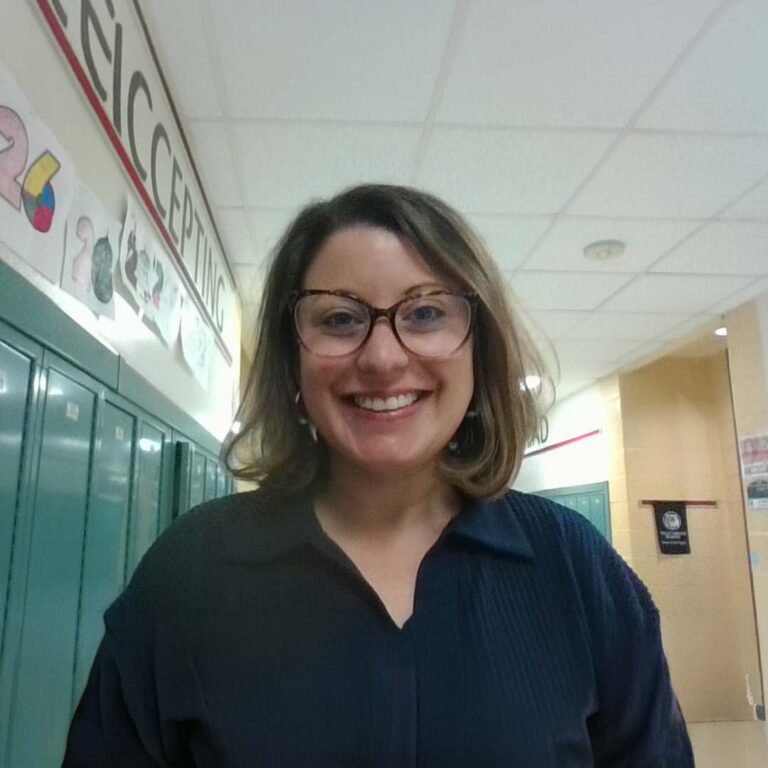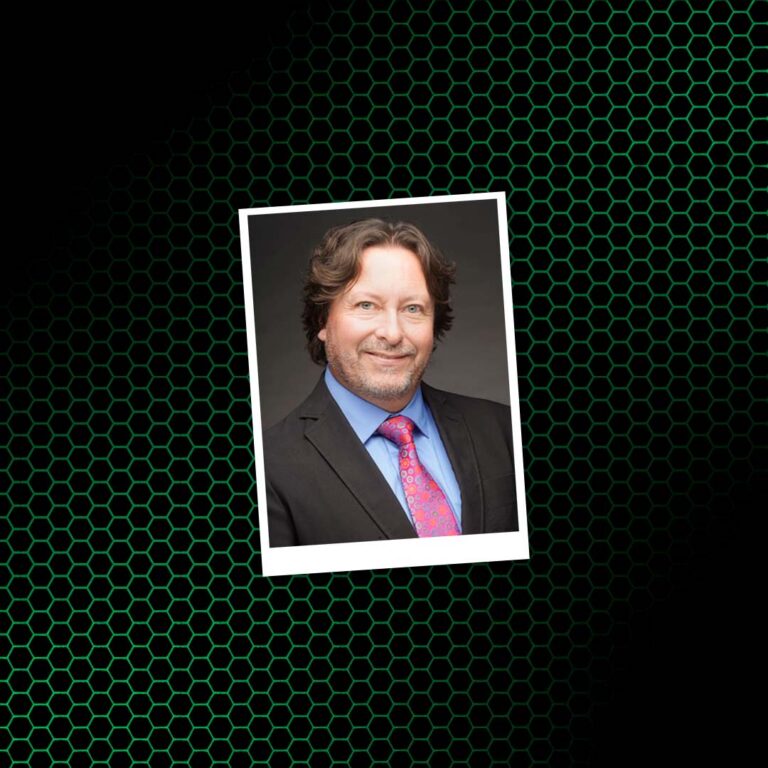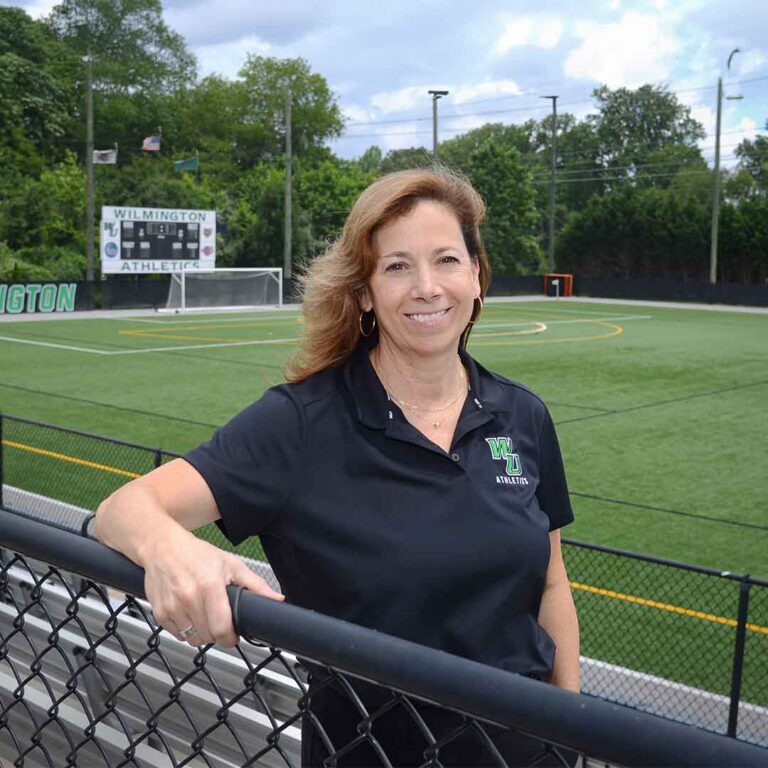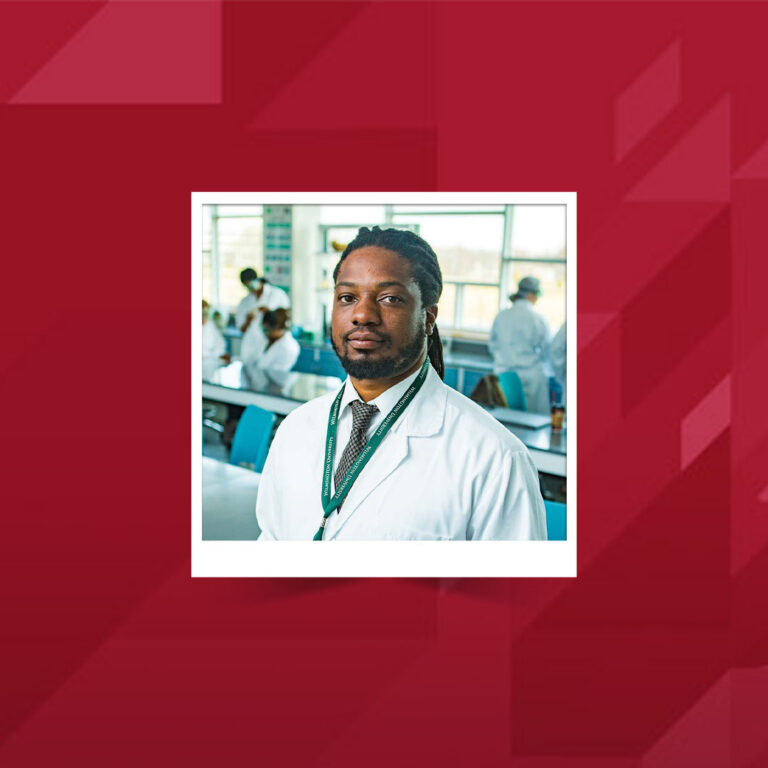Starstruck

Sharon Ungerer was in her third semester at Kutztown University in Pennsylvania when it occurred to her that perhaps Graphic Design was the wrong major.
She had taken a mandatory science class — Biology — and aced it, while many in the class of 100-plus failed. “I thought it was really easy,” Ungerer says, “and I thought, if I understand this stuff so easily, maybe that’s what I should be doing.”
The revelation should not have come as a total surprise. After all, an understanding of science was in her DNA — her mother is an analytical chemist.
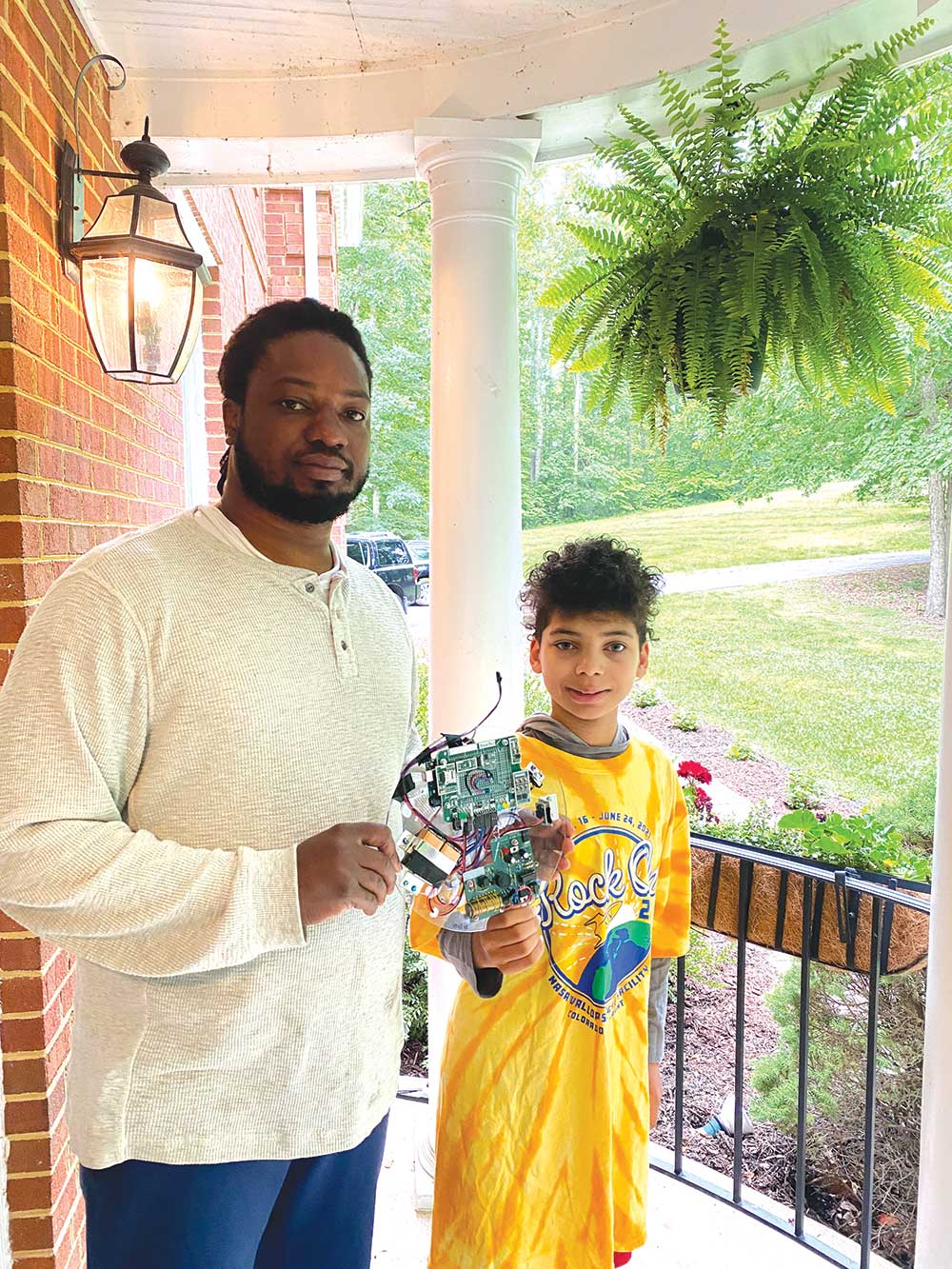
Ungerer re-focused academically, and, after receiving an associate degree from Delaware Technical Community College, enrolled in the Environmental Science and Policy program at Wilmington University in 2017. Here, she came under the tutelage of Dr. Milton Muldrow, chair of Science, Biology & Environmental Science and Policy, who introduced her to the Delaware Space Grant Consortium.
Established in 1991, the Delaware Space Grant is a NASA-funded consortium that promotes STEM education in the state to train students, researchers and teachers and, in turn, helps supply the brainpower that space exploration demands. Tuition awards are up to $5,000 per student. The consortium is headquartered at the University of Delaware, and students at UD, WilmU, Delaware State University, Delaware Technical Community College, and Wesley College, as well as Villanova University and Swarthmore College in Pennsylvania, are eligible. A primary goal is to provide academic-year tuition awards and fellowship opportunities to undergraduates and graduates. The program, which operates in many states, also supports internships in industry and at NASA centers during the summer of the academic year.
When I think ‘Space Grant,’ I think of NASA and aerospace and things like that, but I learned from Dr. Muldrow that it was open to a lot of earth sciences research projects. — Sharon Ungerer
As a result, she became the first Environmental Science and Policy major to receive a Space Grant.
Ungerer graduated in 2018 and is now a GIS (Geographic Information Systems) specialist in the Water Supply Section of the Kent Conservation District in cooperation with DNREC. She’s also a WilmU adjunct, teaching Environmental Informatics. She credits her Space Grant experience, in which she assisted Dr. Muldrow on a study of the Florida Keys coral reef ecosystem, with helping her to land a job in the environmental field, and to do that job well.
“Space Grant gave me the opportunity to hone my research skills before taking on similar projects in a professional setting,” she says. “I do mapping analysis work, and a lot of the analysis has to do with source water protection and groundwater monitoring. We do permitting of wells and generally are making sure Delaware always has a consistent supply of water.”
The word “love” comes up a lot when Ungerer discusses her work. “I love not only being in the environmental field, but I love the spatial analysis and helping the decision-makers to make informed decisions,” she says. “It’s all data-driven. Making sure people have quality water makes me happy. I love my work. I feel like I’m home now.”
Another Space Grant recipient and 2020 Environmental Science and Policy alumna, Laynunwah “Lyn” Mambia, is a biotechnician with Merck Pharmaceutical Company in West Point, Pennsylvania. “The Space Grant was absolutely helpful in securing my job,” says Mambia. “For a person like myself, who did not have any professional experience, the Space Grant work listed on my résumé gave an idea about my ability in a laboratory setting, in a team environment, and a sense of working in a clean space with most of the equipment I am working with now.”
Mambia, a native of Liberia, also assisted Dr. Muldrow on a coral reef project.
I had a wonderful experience at WilmU. Dr. Muldrow gave me — all of us — wonderful mentorship when it comes to securing a job or getting into grad school. — Lyn Mambia
Mambia is in the Cross-Reactive Material Department at Merck, producing a protein used in a pneumococcal vaccine. “I absolutely enjoy my job and my transition to the biopharmaceutical industry,” she says.
An off-shoot of the Space Grant program is RockOn!, an annual project designed for students to learn and apply skills in building experiments for suborbital space flight. Some 100 students from universities across the United States participated in this year’s program.
Two WilmU students — Sarah Latorre and Michael Wilson — worked with Dr. Muldrow in RockOn! this year. Working virtually, the three received separate plans for building circuit boards for the suborbital-sounding rocket that was launched on June 24 from Wallops Island Flight Facility in Virginia. It collected information about radiation, temperature, humidity, and pressure, all of which contribute to what is known as space weather, which can cause problems with devices in space or on the Earth’s surface.
As a participant in the project, Latorre says, “I’m taking in so much information. I’m getting the feel for what it’s like to be a well-rounded scientist.”
A Biology major, Latorre is a self-employed artist who plans to minor in either Art or Entrepreneurship. “I plan on combining science and art in my career and going into teaching or fieldwork.”
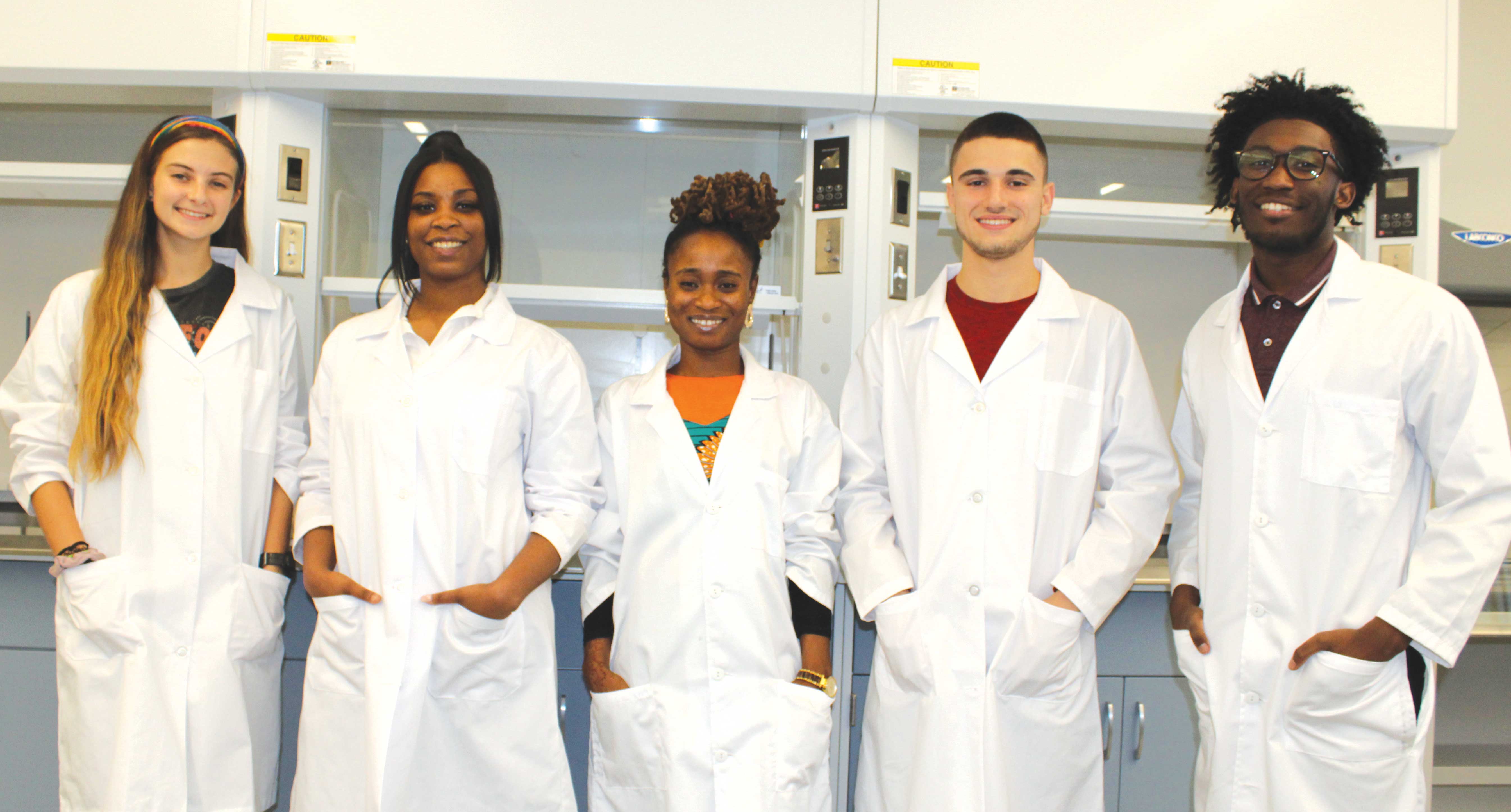
Wilson, also a Biology major, has participated in the Space Grant program since 2019. “As a student who is not majoring in Engineering or Physics, I assumed I would have been a liability to the team,” he says. “But the video instruction thoroughly guides you through the build despite your background.
“The program provided an opportunity for me to conduct research, and I enjoy the yearly Delaware Space Grant Research Symposium, where we present the research conducted throughout the year.” Wilson plans to apply to medical school after graduation.
Dr. Muldrow has been involved in the Space Grant program since 2015 and says that “WilmU students have been recipients every year since then — at least one, and as many as five. It’s a big differentiator for an undergraduate with prospective employers and grad schools.”
Not to mention an exciting experience for the students while they are participating. Sarah Latorre’s reaction is typical: “It feels so incredible to tell people I’m part of Space Grant — and it’s being funded by NASA!”
—Bob Yearick
